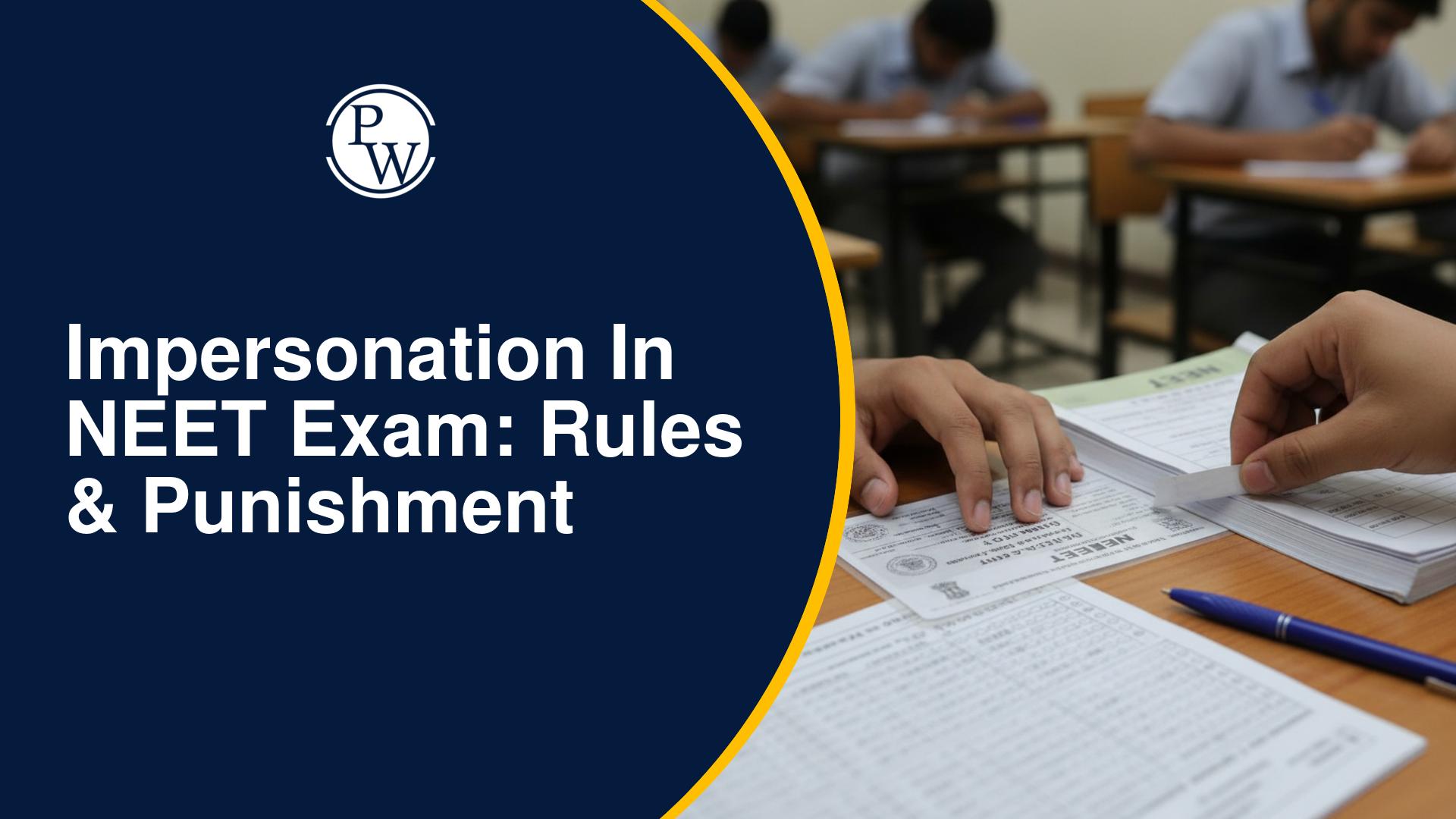
13-Hour Study Time Table for NEET 2026: NEET is one of the largest exams in India for aspiring doctors. NEET 2026 will have papers for Physics, Chemistry, and Biology. Students need to have a clear and smart study strategy as the competition for NEET is intense. The long study hours that most aspirants are trying to achieve for their dream score can be stressful. A strategy like the NEET 2026 13-hour study plan can be implemented.
While it may sound challenging to study for 13 hours a day, it can be achieved in a healthy manner with a routine, breaks, and discipline. This schedule allows adequate time for three subjects, revision, NEET mock tests, and breaks. The focus is on the quality of study with full attention and not the quantity of study with long hours. Here, we will be discussing the 13-Hour Study Time Table for NEET 2026 and a step-by-step NEET 13-hour daily routine. We will also be sharing tips on how to study 13 hours for NEET, and answering some frequently asked questions by students regarding this study plan.
13-Hour Study Time Table for NEET 2026
Before we move to the exact 13-Hour study timetable for NEET 2026, let us understand why such a long study plan is needed and how it helps in NEET preparation.
-
Reasons for 13 hours: The NEET syllabus is huge in size. It has NCERT books from Class 11 and 12 for all three subjects. Students need to revise all the concepts multiple times. In addition, they also need to solve thousands of questions from these books. For all this, a 13-hours study plan is the ideal number of hours which one can get in a day for all the subjects.
-
Balanced number of hours for all subjects: Biology is the single most important part of NEET which has 360 marks. The remaining 180 marks each are for Chemistry and Physics. A good and effective timetable gives maximum time to Biology and other subjects have lesser time in the schedule.
-
Helps in being regular: Doing 13 hours of NEET preparation daily requires discipline. If a student is able to do this on a regular basis, he/she will have very strong study habits. Regular students are able to complete their syllabus early and get more time for revision.
-
Revision and practice: NEET is not about reading the theory. Students need to solve as many practice questions as possible. NEET Previous year papers, mock tests, and sample papers are a few of them. A 13-hour study plan has a perfect balance of all of these in addition to breaks and rest times.
NEET 2026 13-Hour Study Schedule
Here is a NEET 2026 13-hour study schedule that you can follow daily. You can adjust timings as per your own comfort, but try to stick to the same number of hours.
| 13-Hour Study Time Table for NEET 2026 | ||
| Time | Activity | Details |
| 6:00 AM – 6:30 AM | Wake up + Exercise | Freshen up, do light exercise or meditation. Helps in better focus and memory. |
| 6:30 AM – 9:00 AM | Biology (Theory + NCERT) | Read NCERT line by line, highlight key points, make short notes. Best time for theory learning. |
| 9:00 AM – 9:30 AM | Breakfast | Take light and healthy food for energy. |
| 9:30 AM – 11:30 AM | Physics (Concepts + Numericals) | Study new topics or solve numericals when mind is fresh. |
| 11:30 AM – 12:00 PM | Short Break | Stretch, relax eyes, take a 10–15 min walk. |
| 12:00 PM – 2:00 PM | Coaching Classes | Attend Biology, Physics, or Chemistry classes as per schedule. Focus on understanding concepts during lectures. |
| 2:00 PM – 2:30 PM | Lunch | Eat simple, light food. Avoid heavy meals to prevent sleepiness. |
| 2:30 PM – 4:30 PM | Biology (MCQ Practice) | Solve topic-wise MCQs and previous year NEET questions. Aim for 80–100 questions daily. |
| 4:30 PM – 5:30 PM | Physics (Formula Revision + Questions) | Revise formula sheets and solve 15–20 practice problems. |
| 5:30 PM – 6:00 PM | Tea/Snack Break | Refresh your mind, eat light snacks, avoid mobile use. |
| 6:00 PM – 8:00 PM | Chemistry (Physical/Organic Practice) | Solve numericals, equations, and reaction-based problems. |
| 8:00 PM – 8:30 PM | Dinner | Keep dinner light, avoid oily food. |
| 8:30 PM – 10:30 PM | Full Syllabus/Mixed Test Practice | Attempt mock tests, sample papers, or solve mixed NEET-level questions. Focus on error analysis. |
| 10:30 PM – 11:00 PM | Quick Revision | Revise NCERT diagrams, short notes, or formula charts before sleeping. |
| 11:00 PM – 6:00 AM | Sleep | Proper 7-hour sleep is important for long-term focus and memory. |
NEET 13-Hour Daily Routine
Following the same 13-Hour Study Time Table every day builds a routine. Here is how you can maintain your NEET 13-hour daily routine:
| NEET 13-Hour Daily Routine | |
| Routine Step | Description |
| Wake up early | Starting the day early gives more peaceful hours for focused study. |
| Morning focus on theory | Use morning energy for theory-heavy topics like Biology NCERT or Inorganic Chemistry. |
| Afternoon for practice | After lunch, solve numericals and MCQs as theory may feel boring. |
| Evening for problem-solving | Best time to focus on Physics and Physical Chemistry questions that need deep concentration. |
| Night for revision | Revise short notes, formulas, or Biology NCERT lines before sleep for long-term memory. |
| Breaks at the right time | Take short breaks between sessions to recharge and avoid burnout. |
Tips to Manage 13 Hours of Study for NEET 2026
Studying for 13 hours a day is no easy task. Many students may start but quit after 1-2 days. Effective study strategies are essential to maintain 13 hours of study each day.
-
Split up into blocks: You should never study for 13 hours continuously. Divide your study time into 2–3 hours with a small break after every session.
-
Have well-defined goals: Before starting every block, define what you will complete in it. Example: “Today I will revise Plant Kingdom NCERT and solve 50 MCQs”
-
Engage in active study: Try to engage in question-solving, self-quizzing, note-making instead of passive studying like reading. Active work will keep you engaged and avoid sleepiness.
-
Eliminate all distractions: Place your phone away from your study place. Repeated checking social media sites hampers your focus and time.
-
Daily revision: Regular revision is of the utmost importance when it comes to NEET preparation. It is recommended that you revise important formulas, reactions, and NCERT lines daily.
-
Never compromise on sleep: A good night’s sleep is always recommended. You are more likely to learn faster with a fresh mind as compared to a fatigued one.
Prepare for NEET with PhysicsWallah's NEET online coaching. Learn through easy-to-understand lessons and get help whenever you need it.
13-Hour Study Time Table for NEET 2026 FAQs
Q1. Is it possible to study 13 hours a day for NEET?
Q2. How to study 13 hours for NEET without getting tired?
Q3. Which subject should get maximum time in the NEET 13-hour daily routine?
Q4. Can a dropper student follow this NEET 2026 13-hour study schedule?
Q5. What is the NEET 2026 study timetable for last 3 months?










